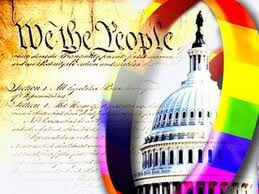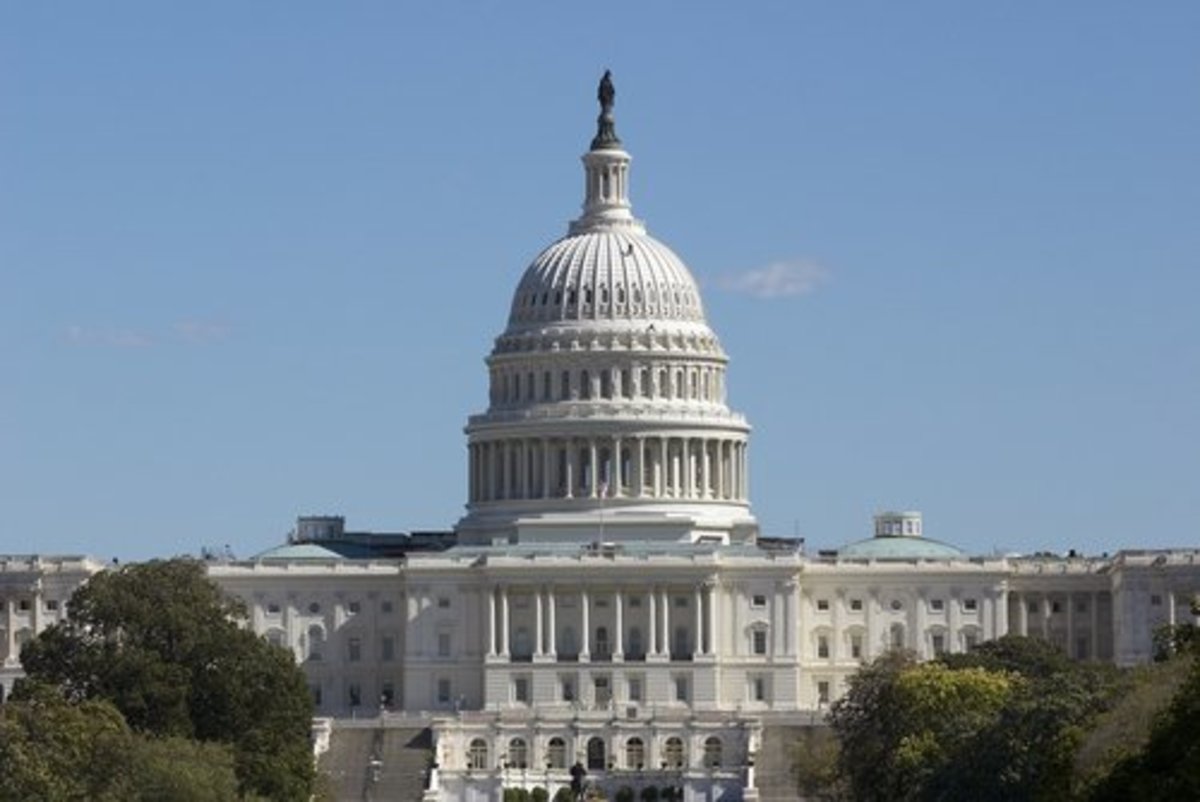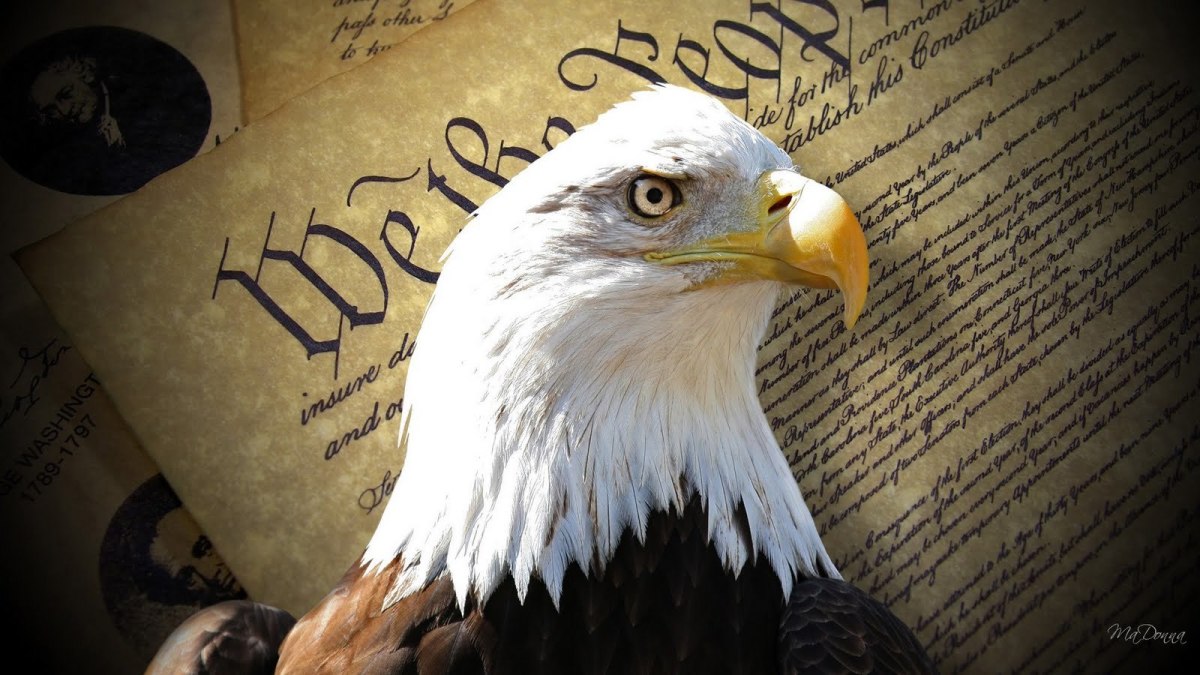Same-Sex Marriage: Constitutional or Unconstitutional

Constitutional or Not?
Same-Sex Marriage: Constitutional or Unconstitutional
The issue of same-sex marriage comes down to two clauses in the 14th Amendment: The Equal Protection Clause and The Due Process Clause (“All persons born or naturalized in the United States, and subject to the jurisdiction thereof, are citizens of the United States and of the State wherein they reside. No State shall make or enforce any law which shall bridge the privileges or immunities of citizens of the United States; nor shall any State deprive any person of life, liberty, or property, without due process of law; nor deny to any person within its jurisdiction the equal protection of the laws [Davis 2008 p. 422-423,437]). We have two sides to this: some interpret for same-sex marriage and some interpret against. I think we need to define what life, liberty, and property mean before we can say whether it is unconstitutional to deny same-sex couples the right to marriage and the benefits that come from it.
According to Webster’s Dictionary, life is defined in a few different ways. The definitions that I believe fit this topic would be: 1)the sequence of physical and mental experiences that make up the existence of an individual and 2) a way or manner of living (Merriam-Webster 2012 Life). Liberty is defined as the quality or state of being free: the positive enjoyment of various social, political, or economic rights and privileges & the power of choice (Merriam-Webster 2012 Liberty). And the last word, property, is defined as the exclusive right to possess, enjoy, and dispose of a thing (Merriam-Webster 2012 Property).
With that said, it would seem that we have the right to choose whom we want to marry. The right to life says we can choose how we live. The right to liberty says we are free to enjoy various activities of our choice. And the right to property means that we can enjoy, have, and get rid of things. Therefore, we have the right to engage in sexual activities with the same sex and/or race and/or opposite/different sex and/or race.
In the Loving v. Virginia case, the Supreme Court rules that Virginia law was in violation of the Equal Protection Clause as well as the Due Process Clause because “the freedom to marry or not marry a person of another race resides with the individual, and cannot be infringed by the state” (Loving v. Virginia 2012). So if it comes down to the individual to decide based on race, than why cannot the same be true for sexual orientation and same-sex marriage? I would say the same argument and opinion can also say that it would be unconstitutional to say marriage can only be for the union of one man and one woman; it must allow for same-sex couples to marry and be given the same rights as those who are opposite-sex couples.
Another case that can be linked to this issue would be that of Lawrence & Garner v. Texas. In this case, two men were found in their private home having sex with each other. The law in Texas at that time forbid same-sex people from having sex. The case was brought before the Supreme Court and was overturned because Justice Kennedy explained that under the Due Process Clause individuals had the right to liberty, which allowed for them to engage in same-sex sex without the intervention of the government (Lawrence & Garner v. Texas 2012).
In California, Proposition 8 was banned because it was said to be unconstitutional since it called for the banning of same-sex marriages. It was banned because it was said to be unconstitutional and therefore, same-sex marriages were acknowledged in California (Richey 2012).
The item now up on the debate board is that of DOMA (Defense of Marriage Act), which was overturned in New York as unconstitutional because it is discriminatory towards same-sex couples by not giving them the same rights as those who were heterosexual (Richey 2012). DOMA is a law that states that marriage is a union between one man and one woman (Richey 2012). Eight states plus the District of Columbia recognize same-sex and twenty-eight states have constitutional amendments that restrict marriage to only be between one man and one woman (Richey 2012). Our country is definitely divided.
This issue is actually very personal to me in two ways: 1) I was raised as a Christian and taught that homosexuality is a sin and 2) I have a cousin who is gay and married his partner in Massachusetts a few years ago. It has taken me years to come to turns with how I would vote on this issue. Based on what I know about the Constitution, I have come to say that same-sex marriage should be recognized in the same way the heterosexual marriage is. Not only does the 14th Amendment stand by this in the area of life, liberty, and property, but our Constitution also states that church and state should be separate (which the issue to not recognize same-sex marriage seems to stem from religious beliefs rather than equality) and that we have the right to pursue life, liberty, and happiness, which Thomas Jefferson stated in our Declaration of Independence.
As a Christian, I personally cannot support it. But as a United States citizen, I believe it would be unconstitutional to keep denying the right of marriage and its benefits from same-sex couples. References
(2012, October 1). Lawrence and Garner v. Texas. The Oyez Project at IIT Chicago-Kent College of Law. Retrieved from http://www.oyez.org/cases/2000-2009/2002/2002_02_102
(2012, October 1). Loving v. Virginia. The Oyez Project at IIT Chicago-Kent College of Law. Retrieved from http://www.oyez.org/cases/1960-1969/1966/1966_395
Davis, S. (2008). Corwin and Peltason’s Understanding the Constitution (17th ed.).Belmont: Thomason Higher Education.
Merriam-Webster Dictionary (2012). An Encyclopædia Britannica Company. Retrieved from http://www.merriam-webster.com/
Richey, W. (June 5, 2012). “Prop. 8: appeals courts set stage for Supreme Court review of gay marriage.” The Christian Science Monitor. Retrieved from 8-appeals-courts-set-stage-for-Supreme-Court-review-of-gay-marriage
Richey, W. (October 18, 2012). “Gay marriage to Supreme Court? More likely after latest rejection of DOMA.” The Christian Science Monitor. Retrieved from marriage-to-Supreme-Court-More-likely-after-latest-rejection-of-DOMA








